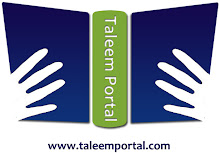Since from the advent of Pakistan, we have been facing many crises still to be sorted out and solved. Major issues hitting Pakistan and forcing to fall its economy back are Corruption, IMF borrowed funding, Electrical crises, Illiteracy. As the Pakistan has world's sixth largest population and have a federation of four provinces, a capital territory and federally administered tribal areas. The current situation prevailing in Karachi, a major industrial area of Pakistan is under swear threats of target killing from recent last years.
The structure of the Pakistani economy has changed from a mainly agricultural base to a strong service base. Pakistan has grown much more than other low-income countries, but has failed to achieve social progress commensurate with its economic growth. The educated and well-off urban population lives not so differently from their counterparts in other countries of similar income range just except those who have inherited lands or forefathers running businesses.
The Educational system of Pakistan is currently lacking much functionality as it is not properly supporting the purpose of educational welfare for development of Pakistani society and has failed to equip the youth with the skills necessary for the development of a modern state, society and economy. The government-run schools and colleges educate the vast majority of children. But their performance compared to the private sector educational institutions is rather poor. The educational system of Pakistan is generally categorized into five levels:
· Primary (grades one - five)
· Middle (grades six - eight)
· High (grades nine and ten, leading to the Secondary School Certificate or SSC)
· Intermediate (grades eleven and twelve, leading to a Higher Secondary (School) Certificate or HSC)
· University programs leading to graduate and advanced degrees
The current system of education, with its western style and content, was introduced & funded by the British in the 19th century. The existing education delivery system is not meeting the needs and aspirations of the current scenario; it is a challenge to the provinces and districts for the 21st century. The main objectives of the devolution plan is to empower the community at the grassroots level in planning, management, resource mobilization and utilization, implementation, monitoring and evaluation of the education system to improve the service delivery at that level. The main inherent issues of education systems are: teacher’s absenteeism, high drop out rates particularly at primary level, high repetition rates, low completion rates, inequalities by gender, location and social groups, low literacy rate and unsatisfactory performance of schools, Also the major issue faced is lack of facilities and infrastructure in schools that leads to the decrease of interest level of students in their curriculum.
Pakistan’s literacy rate is substantially lower than that of many developing nations only about a fourth of all adults are literate. A significant percentage of those who are literate, however, have not had any formal education. Educational levels for women are much lower than those for men. The share of females in educational levels progressively diminishes above the primary school level. Presently, access to school education is inadequate and there are also gender and rural-urban imbalances, both in the availability and quality of education. If we have an over look of the figures of literacy rates prevailing in Pakistan, we will find that despite of going upward comparative to other countries the figures are stand still or falling back due to inadequate resources.
Literacy Rate in (Percentage) is 49 from which the gender wise rates are:
· Male 61.3 %
· Female 36.8 %
As the issue of diminishing in education quality and facilities is going serious day by day to meet the contemporary changes of 21st century, our Govt. and with self-help basis we have take some daring steps to make our educational system productive and able to meet with current challenges.
The trend of education today has been turned into interactive studies with many interest building & holding facilities today for this purpose many new innovative techniques are being used internationally and nation wide also in some posh schools of Country only, that’s why a student passing out from those institute is well educated and aware of how to deal with situation because his abilities has been polished with such mind building facilities.
We are working with a motto of quality education for every child deprived of education for this purpose we are providing modern tool to institutes with an affordability for educational welfare and development As our main focus is to enhance the mental abilities of a child so to fulfill this vision we are providing consultancy and services for better educational future for Pakistan, our modern mind building tool for education development include Interactive white boards, Digital Microscopes, Touch LCDz , E Animations, Response Systems and Interactive Projectors, these all facilities enhances the caliber of students. One most informative service of ours is Britannica which enhances the informative sources for a student ranging from KG group to University level. We fish here with the hope that one day the sun of education will rise with bright light of glory and success in era of education in Pakistan.



